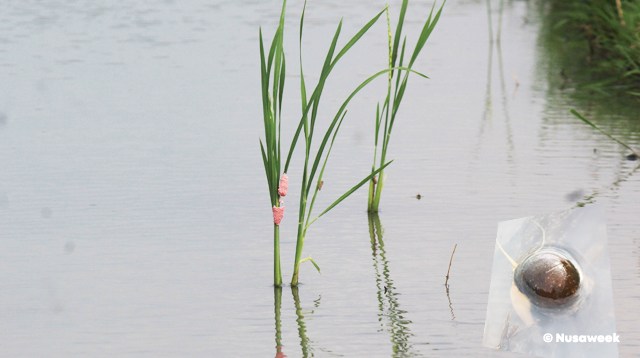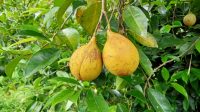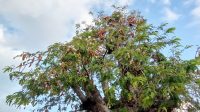VICIOUS attack of golden snail (Pomacea canaliculata) has become a serious threat to rice plants. This snail, which originates from South America, has spread widely in Asia, including Indonesia. Overnight, golden snails can destroy newly planted rice plants, causing huge losses to farmers.
Golden snails are very greedy and eat newly planted rice seeds. In one night, a golden snail attack can destroy an entire plot of rice fields, forcing farmers to have to start the planting process all over again.
This happens because golden snails prefer young plants that are still tender, so their attacks are very detrimental in the early stages of rice growth.
Pesticide Use
To deal with golden snail attacks, farmers often have to use large amounts of pesticides. Chemical pesticides are the main choice because they are effective in killing golden snails. However, excessive use of pesticides can have negative impacts on the environment, such as water and soil pollution, as well as destroying the balance of rice field ecosystems.
Then, in terms of costs, this increases farmers’ expenses in providing pesticides because, at least, farmers have to spray their rice fields three times after planting to reduce golden snail attacks.
Rapid Breeding
Golden snails have the ability to reproduce very quickly. They can lay up to hundreds of eggs in one laying period. These eggs are bright pink and are usually laid on rice stalks above water, grass stalks in rice fields, or on the walls of rice fields.
These eggs hatch within a few weeks, producing many young golden snails ready to infest the rice fields.
Impact on Field Snails
The presence of golden snails also has a negative impact on native rice snails. Rice snails which usually live and thrive in rice fields are now starting to disappear due to the presence of golden snails which are more aggressive and greedier. Rice snails, which also play a role in the rice field ecosystem, must fight to survive amidst the invasion of golden snails.
Control Efforts
Golden snail control requires an integrated approach. Apart from using pesticides, several other methods that can be used are:
- Manual Collection: Manually collect golden snails and their eggs from the rice fields.
- Water Management: Periodically drain the rice fields to reduce the golden snail population.
- Utilization of Natural Predators: Introducing natural predators such as ducks that eat golden snails.
- Utilization of herbal pesticide such as the spray of bitter extract of papaya leaves and
Golden snails pose a serious threat to rice farming, especially in the early stages of plant growth. Their ability to damage crops overnight, reproduce rapidly, and disrupt the balance of rice paddy ecosystems makes them big enemies for farmers.
Effective and environmentally friendly control efforts are very necessary to maintain the continuity of rice farming and the balance of the rice field ecosystem.











